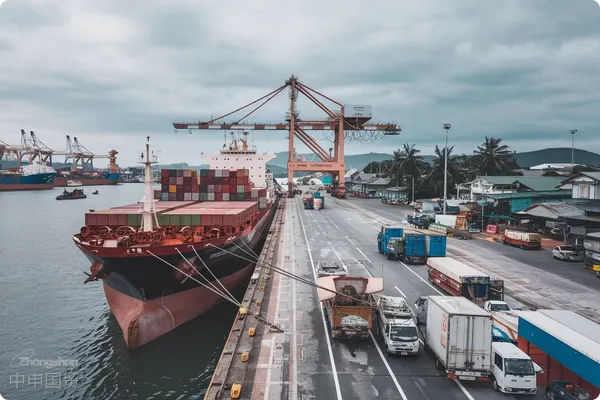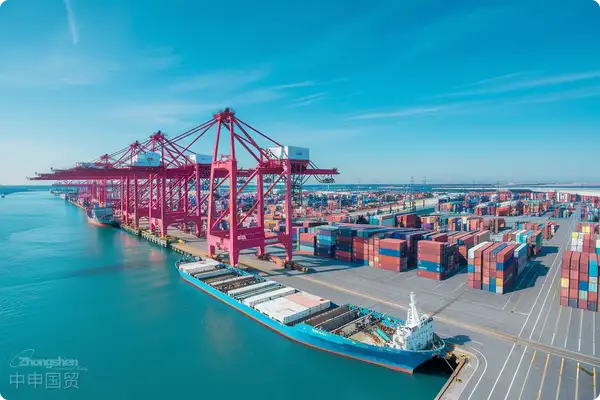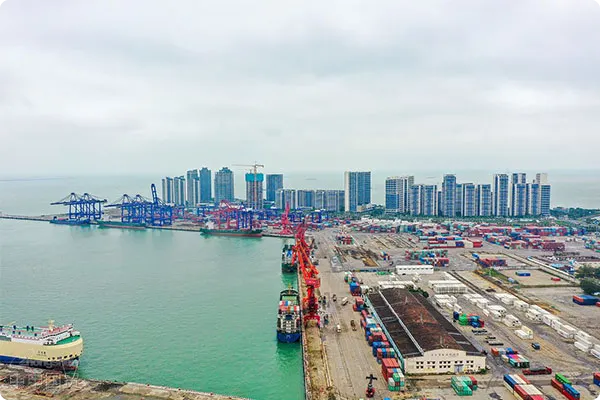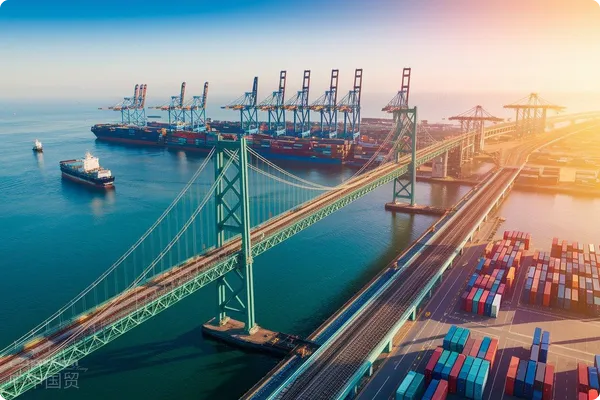- Shanghai Zhongshen International Trade Co., Ltd. - Two decades of trade agency expertise.
- Service Hotline: 139 1787 2118
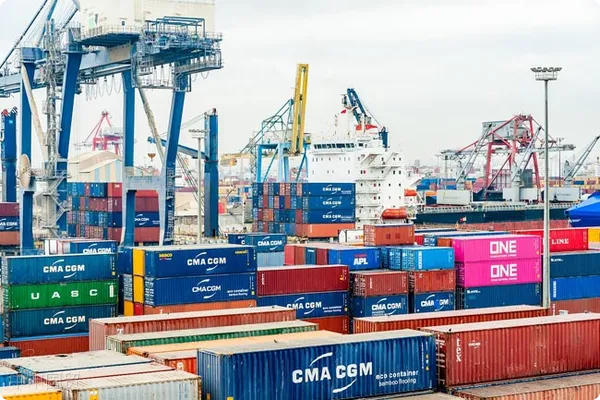
I. Phishing Scams and Prevention
With the widespread use of email and instant messaging tools inforeign tradephishing has become one of the most common foreign trade scams. In this type of scam, scammers obtain the exporters email information through hacking, and then forge emails to change the payment account number at a critical moment. Exporters often realize they have been cheated when waiting for the payment to arrive.
1) Strengthen email security:Avoid entering your email and password on unofficial websites, do not click on links or attachments from unknown sources, and change your password regularly.
2) Use corporate email and two - factor authentication:Purchase a corporate email, enable login alerts and two - factor authentication.
3) Establish a multiple - confirmation mechanism with customers:For example, use instant messaging tools like WhatsApp and agree that both parties will confirm the account information again before remittance.
II. Payment - on - Behalf Scams and Prevention
This type of scam usually involves so - called angel buyers. They not only pay the order amount but also an additional large sum of money and ask the exporter to pay it to other suppliers on their behalf. Exporters are usually deceived by the scammers subsequent stories, resulting in the freezing of their own funds.
1) Define the scope of business:Exporters should clearly define their scope of business and avoid getting involved in unfamiliar areas, such as renting out accounts.
2) Verify the source of the buyer:Especially when the buyer puts forward a very attractive proposal, its background should be carefully checked.
3) Be alert to abnormal transactions:Any abnormal transaction that does not conform to the normal business process should arouse vigilance, especially transactions involving additional funds.
III. Turkish Scams and Prevention
This type of scam takes advantage of the special regulations of the Turkish customs. Scammers will first register a shell company in Turkey and then deliberately delay, resulting in the goods being auctioned by the customs.
1) Understand the laws and regulations of the destination country:Familiarizing yourself with the laws and customs regulations of the trading partners country is the first step in preventing this type of scam.
2) Cooperate with trustworthy freight forwarders and legal advisors:When dealing with complex customs regulations, it is very necessary to cooperate with experienced freight forwarders and legal advisors.
3) Cash on Delivery or useLetter of Credit:When you dont have enough understanding of the regulations and business environment of the destination country, use safer payment methods such as Cash on Delivery or Letter of Credit.
IV. Fake Bank Slips and Letter of Credit Scams
Both of these scams involve complex payment vouchers and bank procedures. In the fake bank slip scam, fraudsters will provide fake remittance vouchers to prove that the payment has been made. In the Letter of Credit scam, some dishonest banks and buyers may collude to delay or avoid payment under various pretexts.
1) Carefully check remittance vouchers:Do not ship goods easily before confirming receipt of payment, and carefully check all remittance vouchers.
2) Cooperate with trustworthy banks:Try to choose internationally renowned banks or banks with a good reputation as partners.
3) Strictly implement the Letter of Credit review process:When accepting a Letter of Credit as a payment method, be sure to review it in strict accordance with international practices and ensure that all terms are clear and enforceable.
V. Certification Scams and Risks of Under - invoicing
These two types of scams may not directly lead to large - scale financial losses, but they will waste time and other resources. In the certification scam, fraudsters will require that the goods must be inspected by a specific certification agency and ask the exporter to pay the fees. In the case of under - invoicing, the exporter may be required to provide an invoice with a value lower than the actual value to help the buyer evade tariffs.
Risk Avoidance and Prevention Methods for Foreign Trade Remittances
Avoid wishful thinking: Choose safe payment methods
When trading with African buyers, the safest payment methods are usually 100% T/T in advance or 50% T/T in advance plus the balance paid before shipment.
a) Choose reliable banks:Avoid accepting Letters of Credit issued by small African banks. It is best to choose Letters of Credit issued by third - country banks with good creditworthiness or local branches of multinational banks.
b) Avoid high - risk payment methods:Such as usance L/C, D/A, D/P, etc. These methods often carry higher risks.
Beware of unscrupulous institutions: Pay attention to the unethical behavior of some banks and customs in Africa
Some banks and customs in Africa may collude with customers, resulting in damage to the exporters payment and goods.
a) Precautions for bill of lading operation:When only part of the payment is prepaid, when faxing a copy of the bill of lading, black out the bill of lading number and container number, and show To Order in the Consignee column.
b) Verify the buyers creditworthiness:Require the buyer to pay a deposit in advance to test the authenticity of their account.
Stick to your own business: Avoid collecting and paying on behalf of others and other illegal acts
Any form of collection and payment on behalf of others is illegal, which may involve bad behaviors such as money laundering.
a) Receive payment before shipping:Be sure to wait until the check or bill of exchange is successfully collected by the bank before shipping.
b) Avoid transfer of payment:Even if the customer lures with a commission, requests for payment on behalf of others should not be accepted.
Background check is necessary:Conduct a comprehensive background check on new customers.
Conduct a comprehensive background check on new customers, which is the key to avoiding risks.
a) Verify through multiple channels:Verification can be carried out through channels such as Google search, LinkedIn, and industrial and commercial registration information.
b) Email and authorization verification:Customers must use a corporate email address and provide relevant written authorization when involving middlemen or agents.
Control the ownership of goods: Ensure full control over the goods
For exporters, controlling the property rights of goods is an important part of preventing fraud.
a) Be alert to inconsistent information:Be alert when the consignee is inconsistent with the payer, the consignee address is inconsistent, or when the customer designates a third - party consignee address.
b) Directly ask about points in doubt:When in doubt about certain information, directly ask the buyer to obtain a clear explanation.
Overall, foreign trade transactions involve multiple links and different risks, especially when trading with African buyers. Therefore, exporters should always be alert and follow the above risk - avoidance tips to minimize potential trade risks.
The above content is sourced from the China Export & Credit Insurance Corporation.ZhongShen International TradeAs a one - stop importExport Representationservice provider, it can provide customizedimport and exportsolutions for various industries. If you need foreign trade import and export agency services, welcome to contact our company for business consultation. The consultation hotline is 139 - 1787 - 2118.
Related Recommendations
Knowledge Base
Contact Us
Email: service@sh-zhongshen.com
Related Recommendations
Contact via WeChat

? 2025. All Rights Reserved. 滬ICP備2023007705號-2  PSB Record: Shanghai No.31011502009912
PSB Record: Shanghai No.31011502009912

